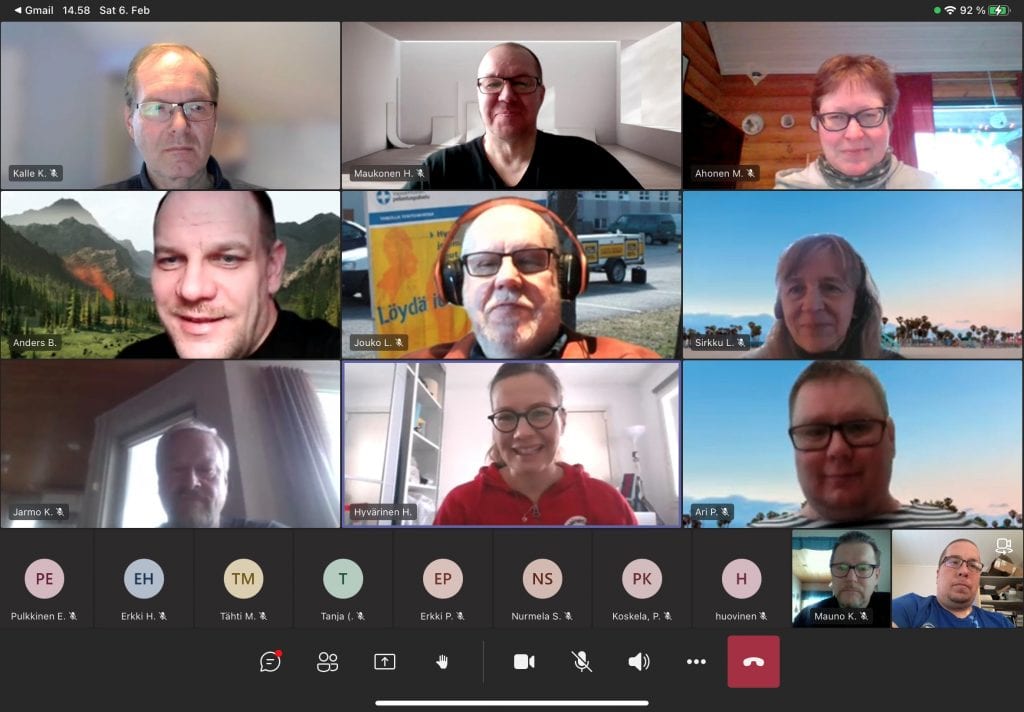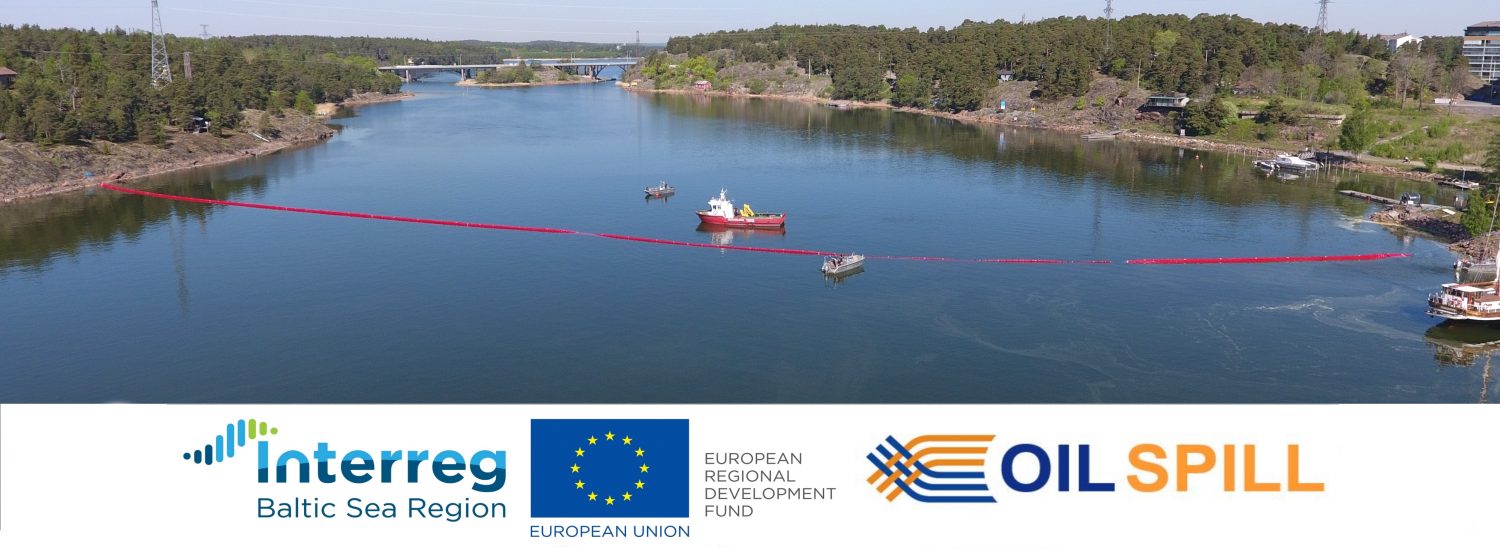50 Finnish Voluntary Rescue Service Leaders Familiarized with Oil Spill Response Online

Text by Heta Hyvärinen, Project Officer, Finnish Red Cross
The volunteer leaders of The Voluntary Rescue Service (Vapepa) are recommended to update their knowledge every three years in Finland. Annually a national supplementary training is organized for them by Finnish Red Cross. The theme is always different and this year it was large-scale and long-lasting emergencies, and we used oil spill response as an example. Altogether 50 voluntary leaders were trained online in two training sessions in February and March 2021.
What is Vapepa?
Vapepa is a network of 50 NGOs and other organisations. The Finnish Red Cross coordinates the network, the Finnish Lifeboat Institution coordinates its marine activity and the Finnish Air Rescue Society its aerial activity. Our helpers operate on the ground, in water areas, or up in the air.
In most cases, Vapepa is called in to search for a missing person, but volunteers are also needed to provide psychosocial support, control traffic, or assist with evacuations or even oil spill response. The Vapepa organisations work together so that the competencies of each organisation can be utilised in an emergency to aid the person in need. During an emergency, Vapepa leads its respective operations.
The role of Vapepa leader in large-scale emergencies
Vapepa leader is a kind of a valve between the authorities and the volunteers. They receive an operation from the authorities, and then inform the other volunteers about it. Of course, they also deliver information the other way: from the volunteers to the authorities.
Therefore, we started our five-hour online training with introduction to large and long-lasting emergencies, that can vary from storms, fires and floodings to terrorist attacks or oil spills, and the role of Vapepa in those operations.
Vapepa leaders are usually there for just a few hours or a day, but in large and long-lasting emergencies they are needed to coordinate large amount of volunteers for weeks or even months. This is why we have developed a model for managing volunteers in oil spill response and we introduced this model to the participants of the training. The same model was introduced in the OIL SPILL webinar on 3rd of February.
Oil spill response is new as a topic for most Vapepa leaders so they were motivated by the presentation of WWF Finland about the societal and environmental consequences of an oil spill. We also did a group exercise online: the participants got information about an imaginary oil spill case and they needed to establish a management centre for volunteers, which would be their task in real-life too.
The exercise was done by parallel Teams meetings of 45 minutes. After returning back to the meeting room, we did the wrap-up by aquarium method, where each group chooses one among them to present their findings. This person opens his/her camera and this way the participants can follow the discussion of 4-5 group representatives and the facilitator “in an aquarium”. This method worked very well in our training.
Conclusion and feedback
In general, the feedback from these two training was excellent: the day was described to be “fruitful” and “thoughts awakening”. One comment especially warmed our hearts: “Thank you for all the trainers – this is the best online training that I have ever participated!”.
This was the first time ever that a training about this topic to this target group and with this method was organized so we did not know what to expect. Of course, only an online training is not sufficient – but better than nothing at this point. Areal and local exercises together with the authorities would be ideal to continue with, both online and live, when it is possible.
We tried to encourage the participants to learn more about the oil spill response by sending them the WWF Voluntary oil spill response guide and a link to the Managing and Organising Volunteers in Oil Spill Response guide in advance (both in Finnish). We also put the link to the WWF event calendar in the chat to advertise oil spill response basic courses for volunteers.
The time will show how many of them actually become active in voluntary oil spill response their areas, but at least we have now spread the knowledge and common understanding a bit more again!

Leave a Reply